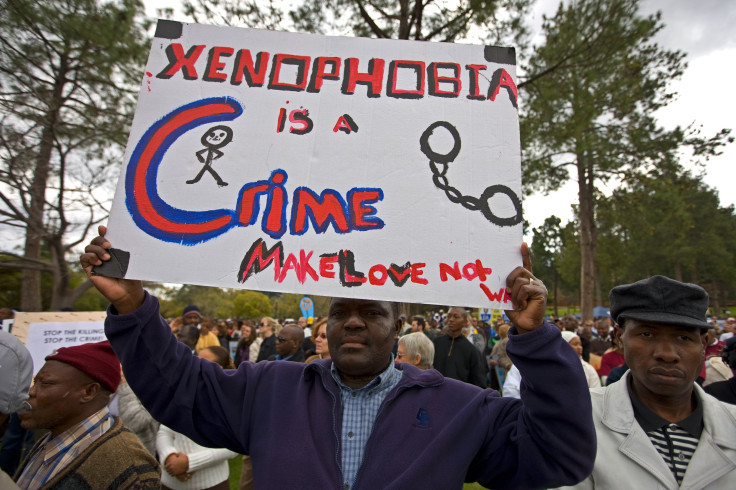Immigration Laws Around The World: South Africa Xenophobia Violence Soars As Raids Target Undocumented Immigrants In The Workplace

The South African government has begun raiding various workplaces in the country in order to enforce its immigration law that states at least a majority of any given company's workers must be citizens. The news came amid a rising wave of anti-immigrant violence in the country.
"We have a commitment of the hospitality sector on the need to comply with SA’s labour and immigration laws, especially the requirement to employ a minimum 60% of local people," South African Minister of Home Affairs Malusi Nkanyezi Gigaba wrote in a public letter posted to his agency's website Thursday. "This is the message we are taking to the rest of business, and will feature strongly in our upcoming meetings. There will be workplace inspections and penalties for employing undocumented foreigners will be imposed."
The letter went on to disclose that recent raids have yielded dozens of arrests and detainments.
Xenophobia has been on the rise in South Africa, with Nigerians in particular being the focus of much of the violence that has erupted as a result of increasing unemployment, according to Okay Africa. Businesses and residences of Nigerians living in South Africa have been robbed and looted, prompting Nigerian officials to ask the local government to intervene.
“The South African government must take decisive and definitive measures to protect Nigerians and other African nationals,” said Abike Dabiri-Erewa, who advises the Nigerian president when it comes to foreign affairs. Her appeal to South African officials claimed that more than 100 Nigerians had been killed in South Africa because of xenophobia in the last two years.
A march protesting immigrants living in South Africa has been planned for Friday. Organizers have said immigrants were not only taking legal jobs but running illegal enterprises such as brothels and dealing drugs, local media outlet Eyewitness News reported.
The march was condemned by a continental group based in Capetown that said it "helps to build fair, inclusive and democratic societies in Africa through carefully selected engagements and interventions." The Institute for Justice and Reconciliation (IJR) appealed to local law enforcement to try to stop the march, News 24 reported.
"There is an urgent need for the South African government to address the systemic inefficiencies that lead to xenophobic violence," IJR said. "Community leaders and government officials should avoid using inflammatory xenophobic language which further fuels xenophobic attitudes."
© Copyright IBTimes 2024. All rights reserved.






















